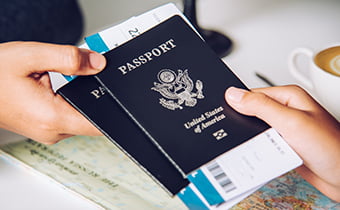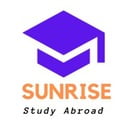
As an aspiring international student, the prospect of studying abroad can be both exciting and daunting. Australia has emerged as a popular destination for students from all over the world, including Bangladesh. With its world-class education system, diverse culture, and stunning landscapes, Australia offers a unique and enriching experience for those seeking to pursue higher education. In this comprehensive guide, I will take you through the step-by-step process of studying in Australia, from choosing the right course to navigating the visa process.
Studying in Australia can be an expensive endeavor, especially for international students. However, there are numerous scholarships and opportunities available specifically for students from Bangladesh. These scholarships aim to support academically talented individuals and provide them with the financial assistance needed to pursue their studies in Australia. Here are some of the scholarships and opportunities you can explore:
In addition to scholarships, there are also opportunities for part-time work in Australia while studying. The Australian government allows international students to work up to 20 hours per week during the semester and full-time during holidays. This can help you gain valuable work experience, earn money to support your living expenses, and enhance your employability.

Australia is renowned for its high-quality education system, which consistently ranks among the best in the world. The country boasts a wide range of universities and institutions that offer an extensive selection of courses across various disciplines. Whether you are interested in engineering, business, medicine, or the arts, Australia provides ample opportunities to pursue your passion. Moreover, the Australian education system emphasizes practical learning, providing students with the necessary skills and knowledge to succeed in their chosen fields.
Apart from academic excellence, Australia offers a multicultural and welcoming environment for international students. With a vibrant and diverse community, you will have the chance to meet people from all walks of life and build lifelong friendships. Additionally, Australia’s strong economy and excellent job prospects make it an attractive destination for those looking to kickstart their careers. The country’s strong ties with industries and businesses ensure that graduates are well-equipped to enter the workforce upon completion of their studies.
One of the common concerns for international students is the language proficiency requirements. In most cases, universities and institutions in Australia require proof of English language proficiency, typically through tests like the International English Language Testing System (IELTS). However, there are alternatives available for students who may not have taken or achieved the required scores in these tests.
Several universities in Australia offer English language courses that can help improve your language skills and meet the entry requirements. These courses, often referred to as English for Academic Purposes (EAP), provide intensive language training and support to ensure students can successfully engage with their chosen course of study. Additionally, some institutions may waive the language proficiency requirements if you have completed a certain level of education in English or if you are a citizen of a country where English is the primary language.
It is important to note that the specific requirements vary between institutions, so it is advisable to check with your chosen university or institution for their individual policies and options for studying in Australia without IELTS.
To study in Australia, you need to meet certain requirements and eligibility criteria. These requirements may vary depending on the level of study (undergraduate or postgraduate) and the specific course you wish to pursue. Here are some of the general requirements:
It is essential to thoroughly research and understand the specific requirements for your chosen course and institution to ensure you meet all the necessary criteria.
Studying in Australia can be a significant financial investment, but it is important to remember that it is an investment in your future. The cost of studying in Australia will depend on various factors, including the course, institution, location, and lifestyle choices. Here are some of the key expenses to consider:
While the cost of studying in Australia may seem daunting, there are several funding options available to help alleviate the financial burden. Scholarships, grants, and bursaries are offered by various institutions, government bodies, and organizations to support international students. Additionally, many universities provide part-time work opportunities on campus, allowing students to earn money while studying. It is important to explore and apply for these funding options well in advance to increase your chances of success.
To study in Australia visa, you will need to apply for a student visa. The process can seem complex, but with proper preparation and guidance, it can be navigated smoothly. Here is a step-by-step overview of the study visa in Australia application process:
Once your student visa is approved, you can make the necessary arrangements for your travel to Australia. It is important to familiarize yourself with the visa conditions and comply with them throughout your stay in the country.
Australia is home to several world-renowned universities offering high-quality education across various disciplines. Whether you’re interested in business, engineering, medicine, or the arts, Australia has a university for you. Here are some of the best universities in Australia to consider for your studies:
Whether you’re looking for a vibrant city experience or a serene campus setting, Australia’s top universities offer a diverse range of programs and opportunities for students from around the world. With their strong emphasis on research, innovation, and academic excellence, these universities provide an enriching educational experience for students seeking to study in Australia.
Australia offers a wide range of subjects and disciplines for international students. The choice of the best subject to study depends on your interests, career aspirations, and the demand in the job market. Here are some of the top subjects to consider when studying in Australia:
Australia is known for its strong engineering programs, particularly in areas such as civil engineering, mechanical engineering, and electrical engineering. The country’s advanced infrastructure and technological advancements present excellent opportunities for engineering graduates.
The business and management field is highly sought after in Australia. With a thriving economy and strong ties to the Asia-Pacific region, studying business in Australia can provide you with valuable skills and knowledge to succeed in the global business landscape.
As technology continues to shape the world, studying information technology in Australia can open doors to diverse career opportunities. The country’s strong IT industry and innovative research make it an ideal destination for aspiring IT professionals.
Australia is renowned for its healthcare system and medical research. Studying health sciences in Australia can lead to rewarding careers in areas such as medicine, nursing, physiotherapy, and public health.
With its unique ecosystems and commitment to sustainability, Australia is an excellent choice for those interested in environmental studies. The country offers a range of courses in environmental science, conservation, and resource management.
Apart from these subjects, Australia also excels in fields such as arts and humanities, social sciences, education, and creative industries. It is important to research the specific courses and institutions to find the best fit for your academic and career goals.
While studying in Australia can be a significant investment, there are low-cost study options available that can help reduce the financial burden. Here are some ways to study in Australia on a budget:
Tuition fees and living expenses in major cities like Sydney and Melbourne tend to be higher compared to regional or suburban areas. Consider exploring universities located in smaller cities or regional areas, as they often offer lower tuition fees and a more affordable cost of living.
As mentioned earlier, scholarships and grants can provide financial assistance to international students. Thoroughly research and apply for scholarships that are specifically designed for international students or those from developing countries like Bangladesh.
The Australian government allows international students to work part-time while studying. Working part-time can help cover your living expenses and reduce the financial burden. However, it is important to balance your work commitments with your studies to ensure academic success.
Creating a realistic budget and sticking to it can significantly help in managing your expenses. Prioritize your spending and look for ways to save money, such as cooking at home, using
If you have completed your Higher Secondary Certificate (HSC) in Bangladesh and wish to pursue higher education in Australia, pathway programs can provide a stepping stone to your desired course. Pathway programs are designed to bridge the gap between your current qualifications and the requirements for university entry. Here are some pathway options available in Australia:
Pathway programs not only provide a smoother transition into university but also offer additional support and guidance to international students. They help you adapt to the Australian education system, refine your study skills, and build the necessary foundation for success in your chosen course.
Australia offers various pathways for international students to obtain a Permanent Residency (PR) after completing their studies. PR allows individuals to live and work in Australia indefinitely and enjoy the benefits of being a permanent resident. Here are some common pathways to PR:
The Temporary Graduate Visa is specifically designed for international students who have completed their studies in Australia. This visa allows you to stay in Australia for a certain period, depending on the level of qualification obtained. During this time, you can gain relevant work experience to enhance your chances of obtaining PR.
Australia has a skilled migration program that aims to attract talented individuals with skills and qualifications in demand. If your occupation is listed on the Skilled Occupation List (SOL) or the Regional Occupation List (ROL), you may be eligible to apply for a skilled visa. This pathway requires meeting specific criteria, including age, English language proficiency, work experience, and skills assessment.
Australian employers have the option to sponsor skilled workers for PR. If you secure a job offer from an Australian employer, they may be willing to sponsor your PR application. This pathway often requires meeting certain skills and experience requirements.
It is important to note that obtaining PR is a complex process, and the specific requirements may change over time. It is advisable to consult with a registered migration agent or the Department of Home Affairs to ensure you have the most up-to-date information and guidance.

If you need guidance and support throughout the study abroad process, Sunrise study abroad consultants can be a valuable resource. Sunrise study abroad consultants specialize in assisting students in choosing suitable universities, completing application forms, and providing information on scholarships and visa requirements. They can also provide guidance on other aspects such as accommodation and cultural integration.
Sunrise study abroad consultants visa assistance services can provide valuable support in preparing the necessary documents, completing the application forms, and guiding you through the interview process. Sunrise study abroad consultants can ensure that your visa application is accurate and submitted within the specified time frame.
Preparing for your study abroad journey can be overwhelming, especially if you are unfamiliar with the destination country. Pre-departure support services can provide guidance on travel arrangements, packing essentials, and cultural orientation. Once you arrive in Italy, post-arrival support services can assist you in settling down, opening bank accounts, and getting acquainted with your new surroundings.
which is where Sunrise Study Abroad Consultants come in. With their expertise and experience, these consultants provide valuable guidance and support throughout your higher study journey. They help you identify suitable universities, assist with the application process, provide visa counseling, and offer insights into financial aid options. Sunrise Study Abroad Consultants also conduct personalized counseling sessions, addressing your concerns and ensuring that you make informed decisions. Their comprehensive services streamline the process, allowing you to focus on your academic goals while leaving the logistics in capable hands. Sunrise study abroad consultants will guide and support you in the whole journey.
Yes, international students on a student visa are permitted to work a limited number of hours per week during the academic year and full-time during scheduled course breaks. This allows students to gain work experience while studying.
Studying nursing in Australia offers access to world-class education and practical training, leading to excellent career prospects. Australia's healthcare system is highly regarded, and the country provides a multicultural environment to learn and practice nursing.
To pursue a master's degree in Australia, you need to have completed a bachelor's degree or an equivalent qualification. You also need to meet the specific entry requirements of the university and the master's program you are interested in.
Australia offers a wide range of PhD programs across various disciplines. These programs provide opportunities for in-depth research, academic growth, and career advancement. Prospective students should explore specific universities and their offerings.
International students are generally required to demonstrate proficiency in English by taking tests such as IELTS, TOEFL, PTE Academic, or Cambridge Advanced English. Each university sets its own English language requirements for admission.

